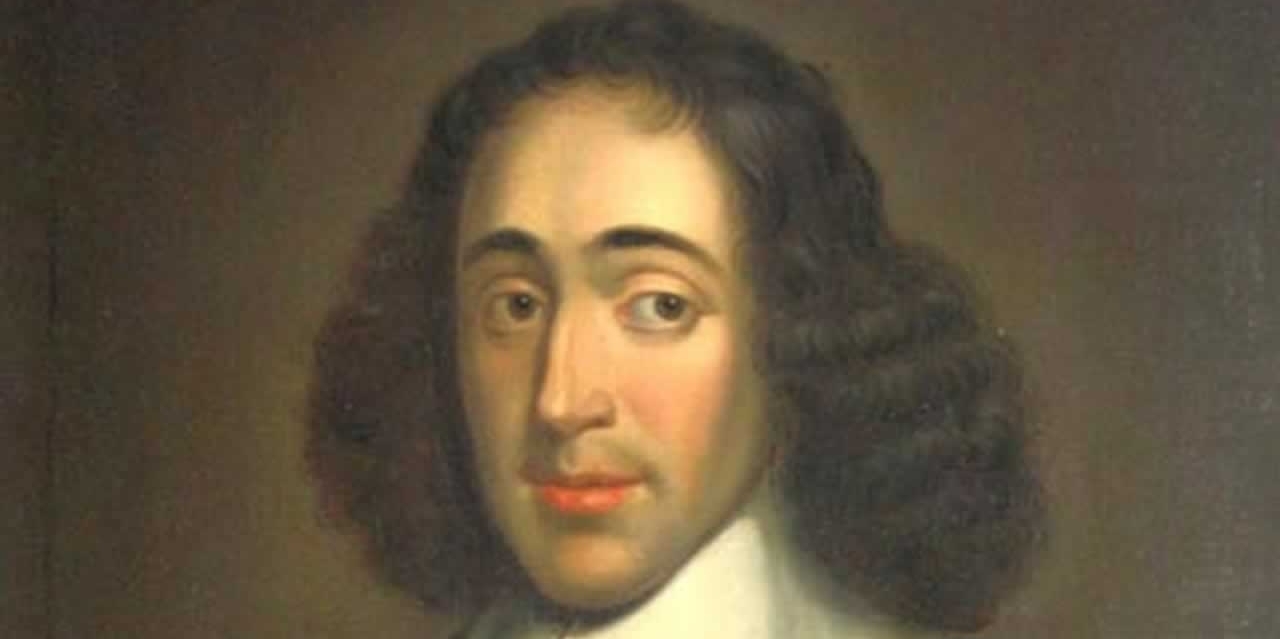Who is Spinoza and what kind of philosophy does he offer us?
According to Spinoza, the important thing is to live well rather than just to live, and this is only possible with knowledge. The more knowledge we have, the better life we will have.

Jewish-born Dutch philosopher Baruch Spinoza was born on 24 November 1632 in Amsterdam and died on 21 February 1677 in The Hague. His family escaped from the pressure of the Inquisition in Portugal and settled first in Nantes and then in the Netherlands.
His father, as an influential person in the social field as well as in business, becomes the director of the synagogue and Jewish school in Amsterdam. At the age of six, Spinoza, whose family tried to train him to become a rabbi, began his education at the Talmud Torah school. In addition to Spanish and Portuguese, which he learned as a child, he learns the basic principles of Hebrew, French, Italian and Latin during the education process.
Baruch (de) Spinoza (24 November 1632 – 21 February 1677) was a Dutch philosopher of Portuguese Sephardic Jewish origin.
The teachings of the famous rabbis Saul Levi Morteira and Menasseh Ben Israel, who were his teachers at this school, influenced him. As the educational process progresses, he gradually begins to draw different conclusions from traditional teachings and interpretations of scriptures.
Expulsion from the Jewish Community
In 1650, he continued the Latin and natural science lessons of Franciscus van den Enden, one of the famous philosophers of his time. During his lectures, he was kneaded with advanced and far ahead of his time ideas about religious tolerance, the secular state, public education and a fairer form of justice. In 1652, he started the lens chipping business. In 1655, he was tried by the Jewish Community court with the crime of making non-religious behaviors and discourses. An inscription hung on the door of the great synagogue in Houtgracht on 27 July 1656 was also removed from the congregation, claiming that the Torah was "a figurative and symbolic book for learning the nature of God." “Cherem” or “Herem”, a punishment similar to excommunication in Judaism, is a great punishment and cannot be undone. Upon this punishment, he changed his name and started to use the name "Benedictus", which is the Latin equivalent of "Baruch". Spinoza, who started to live with the Portuguese name "Bento / Holy Man", will continue his life as a person excluded from society because of his thoughts.
“No one will have any verbal or written communication with him, no one will be under the same roof with him, no one will even come close to him, no one will help him in any way, and none of his works will be read.”
Happiness that comes with real knowledge
Due to the pressure exerted on him by the Jewish Community, he left the city and settled in a village near Ouwerkerk in the southwest of the Netherlands. After a while, he returns to Amsterdam and continues his life by giving lectures on Descartes philosophy and sculpting lenses. During this period, he wrote his work titled “Breve studium de Dei, Nomine, et de Bono Humano / A Brief Treatise on God, Man and Human Well-being”. This book is known as the key book of his philosophy.
Influenced by Descartes' philosophy, Spinoza believes that science reveals the reality of existence or the world. Spinoza argues that knowledge, by entering the service of morality, will liberate people from all kinds of slavery. For him, philosophy is nothing but the discovery of "true truth". It is impossible to be happy without real knowledge.
The fact that Spinoza was described as atheist and applied "Herem" is the result of his misunderstanding, or rather, the suspicion of the Jewish religious view of God. God should be thought of as “that which needs nothing but himself in order to exist”. God is eternal.
The important thing is to live well
According to Spinoza, the important thing is to live well rather than just to live, and this is only possible with knowledge. The more knowledge we have, the better life we will have. In addition, the increase in knowledge enables people to be free. A truly free person engages in self-interested activities and has the opportunity to lead a life in peace both with himself and with his surroundings.
The basis of Spinoza's political philosophy is democracy. Freedom of expression, which will protect the differences between people who are different and enable them to act in a way that reflects them to the life they live, is only possible with democracy. It's not just that enlightened people aspire to end the hatred, envy, and frustration within themselves; As long as they cannot reduce the hatred, envy and frustration in others, it is inevitable that they will receive a heavy blow. Therefore, the enlightened person should cooperate with others in the pursuit of knowledge, and this cooperation should be based on common interest, not fear. In this case, the most rational state is the state that is the most liberal and therefore based on freedom of expression, since living freely means living under the guidance of reason.
Love instead of fear
The book of Spinoza that should be read in every age is undoubtedly the "Ethics". With the narration of Çiğdem Dürüşken, this book; It is a philosophy book to be read incessantly and digestingly, by sitting down with Spinoza, talking, discussing. A person should start reading this book in the clearest and clearest moment of his mind, and even after finishing the whole book, he should go back to the beginning and read it again, this time with a detailed perspective.
“Love is an emotion that makes people truly human, while hate is an emotion that dehumanizes people.” We should not forget that Spinoza's whole purpose is to think that the knowledgeable person will get rid of their fears and find love.
